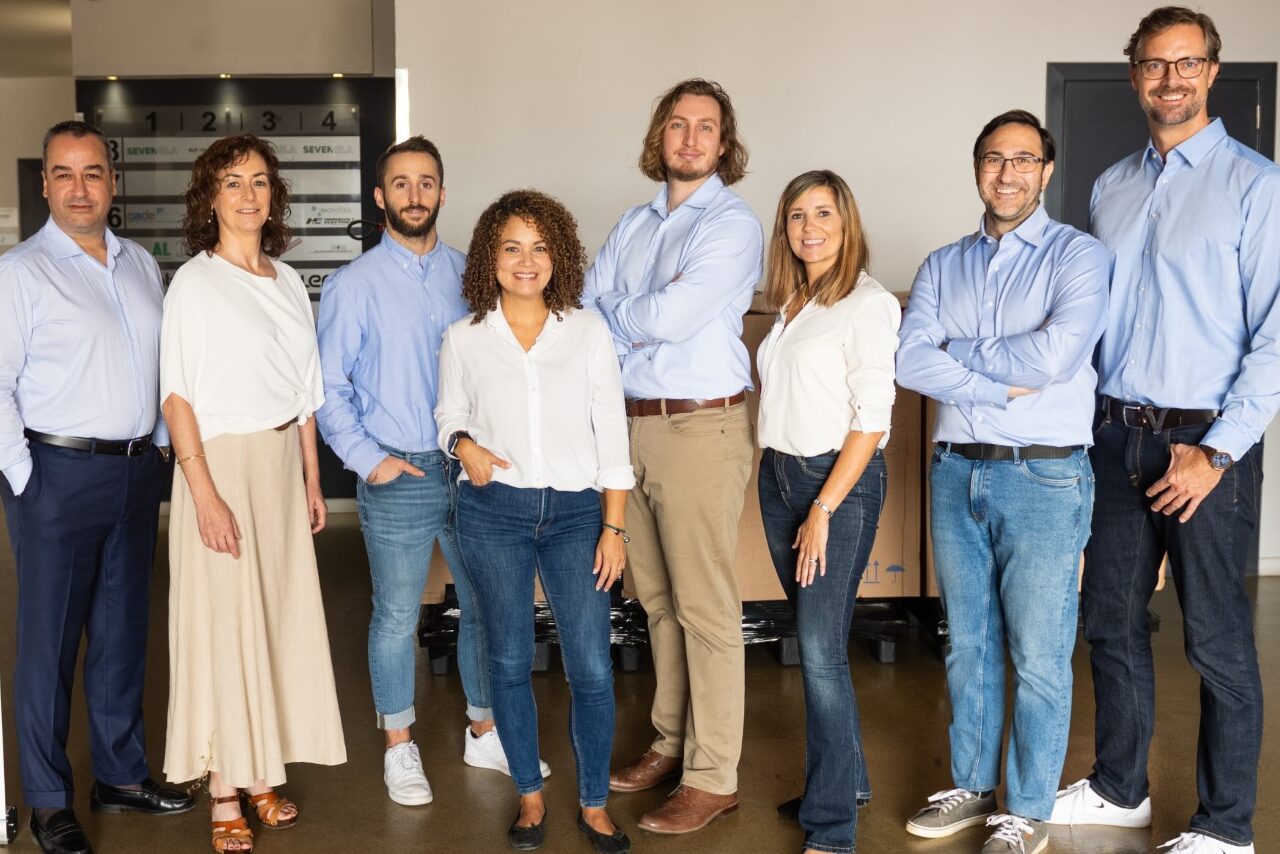14th February 2022
People who live in areas with year-round, bright sunlight have usually a great injection of vitamin D, but at the same time are at a higher risk of skin cancer. Sloping on tons of sunscreens might prevent sunburns but it has long-term negative effects on our health and environment. EIT Health-supported start-up led by Magdalena Jander, PhD is developing a product that has the potential to make a serious impact on the cosmetics industry and methods of sun protection.
Palau is one of the few places that one can call paradise on Earth. It is a beautiful country that consists of more than 300 coral and volcanic islands. Tourists have been travelling thousands of miles just to see the breath taking scenery at the western Pacific Ocean. But one day scientists decided to look below the waterline. Their discovery was shocking: sea life was in danger and the responsible were humans, who were trying to protect themselves from harmful UV radiation by using sunscreen.
In 2015, Dr. Craig Downs, Executive Director of the Haereticus Environmental Laboratory, discovered, that oxybenzone – a widely used ingredient in sunscreens – was killing coral reefs. The discovery led Palau to be the first country to ban several popular sunscreens. Other countries and regions are expected to follow the trend.
Palau and Poland are thousands of miles away, however, they have something in common: Magdalena Jander. The Polish Biotechnologist (PhD) and entrepreneur is the CEO of UVera, a start-up that is developing a sunscreen that is not only environmentally friendly but is also safe for humans.
Sunscreens destroy marine life
“Sunscreens are causing really harmful side-effects regarding the human health. They also have a serious environmental impact: they are destroying marine life and coral reefs. We have found a solution. It is a specific strain of cyanobacteria which is almost 2 billion years old and produces natural UV protectors outside their cells” – says Magdalena Jander, who was included in the prestigious ’Women of the Year’ list by Forbes Women Poland in 2021 and was elected Businesswoman of the year in 2019 in the Leader of Innovative Technologies category.
As she explains, UV filters found in many cosmetic products can enter the bloodstream and cause DNA damage. They can even increase the risk of developing skin cancer. What’s more alarming is the volume at which they are sold. According to the market research group Fact.MR, in 2018 one billion units of sunscreens were sold worldwide. This way humans are not only jeopardising the marine ecosystem but their own health as well.
“Instead of protecting us from skin cancer they might have a disruptive effect” – she explains, adding that UVera is working on protection against the full UV range.
Gender imbalance starts at university
While she speaks, she has a spark in her eyes. She is a role-model for many “little Magdas” out there, including her two daughters. “We are trying our best to raise them in this ‘innovation spirit’, to always be curious. We always tell them that they should look for the solution, they should not omit any kind of problem” – says Jander, who takes part in different organisations that support not only women but leadership as well. “I still see that there is not a lot of women in the start-up industry, and I think… this imbalance is coming from the university. In science, technology, engineering and mathematics, there is still less women than men” – she explains. According to survey conducted by Microsoft on 11,500 young women across 12 European countries, girls aged 11–12 are just as interested in STEM as boys. But as soon as they turn 15-16 their interest plummets. At that age, only 5% of girls report that they expect to have a career in computing or engineering, compared to 18% of boys, according to the OECD. This survey also reveals, that having visible female role models sparks girls’ interest in STEM careers, as well as practical experiences and hands-on exercises inside or outside the classroom.
Magdalena Jander has a lot to share with future female entrepreneurs. The Biotechnologist – who apart from her native Polish, speaks English, French and Japanese – was offered two international fellowships, one at Sorbonne Université Pierre et Marie Curie in Paris and one at Osaka University in Japan. In 2019 the UVera team won the EIT Health InnoStars Awards, a unique programme for early-stage start-ups from Central, Eastern and Southern European countries, with a modest or moderate innovation capacity. The start-up kept enjoying the support of EIT Health – EU-backed organisation that supports innovators – and a year later won the EIT Health Catapult’s 1st prize in the biotech category as well as the Alex Casta Audience Award. Thanks to this latter, UVera’s name was displayed on the Nasdaq Tower in New York’s iconic spot, Times Square.
UVera – whose expert team consists of researchers and engineers – aims to launch the product in 2023, which is in line with the Green Deal objectives. The product is being made in a zero-waste process: its production consumes tons of carbon dioxide, and its by-products are oxygen and fertile biomass. Sustainable innovations are getting more appreciated worldwide and UVera could make a real impact in a potent global sector: the cosmetics industry.
This is the ultimate goal for most start-ups, no matter in which field they operate. Magdalena Jander has a piece of advice for them: “Seize the moment! Launching a start-up is just about finding the right people at the right place with the right innovation. And be sure that the people with whom you are working are credible. Then you can be sure that you can move the whole world together.”
MOWOOT secures over €2M from Next Generation funds

Learn how EIT Health accelerated their journey.
Join the heartbeat of healthtech in Munich this June

Discover the third annual health.tech conference.
Health experts make recommendations on EHDS implementation

Discover our new Think Tank report.